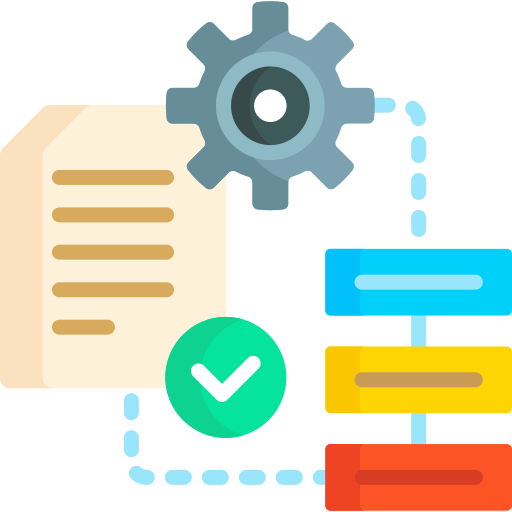Forensic Accounting
Forensic accounting is a specialized area of accounting that involves investigation of financial records to detect fraud, theft, or other financial crimes. Forensic accountants combine their accounting skills with investigative techniques to analyze complex financial data and help in providing evidence that can be used in legal proceedings.
In addition to fraud detection, forensic accountants also play a vital role in litigation support. They assist attorneys in preparing cases by providing expert analysis of financial documents and creating reports that summarize their findings. Their expertise can be essential in disputes involving business valuations, breach of contract or divorce settlements, where financial matters are central to the case. Forensic accounting serves as an essential tool in safeguarding the integrity of financial systems and ensuring accountability in various sectors.
Importance of Forensic Accounting
1. Fraud Detection and Prevention:
- Forensic accountants specialize in identifying fraudulent activities. They use their skills to detect irregularities in financial statements and transactions, helping organizations prevent fraud before it worsens.
2. Legal Evidence:
- In cases of fraud or financial disputes, forensic accountants provide crucial evidence that can be used in court. Their detailed investigations and reports can help in establishing facts and supporting legal claims.
3. Dispute Resolution:
- Forensic accounting plays a key role in resolving financial disputes between parties. Whether it’s in divorce settlements, business disputes or insurance claims, forensic accountants can provide clarity and help reach fair resolutions.
4. Regulatory Compliance:
- There are a number of financial regulations that organizations need to follow. Forensic accountants help in ensuring that companies adhere to these rules while reducing the risk of penalties and legal issues.
5. Risk Management:
- By analyzing financial data and identifying vulnerabilities, forensic accountants help businesses manage risks better. This strategic approach can save companies from potential financial losses.
6. Financial Analysis:
- Beyond fraud detection, forensic accountants provide valuable insights into financial performance. Their analysis can help businesses in making informed decisions and improving overall financial health.
7. Insurance Claims:
- In cases of loss, such as theft or damage, forensic accountants assist in substantiating insurance claims. They evaluate losses and provide documentation necessary for claims processing.
9. Enhanced Internal Controls:
- By assessing a company’s financial practices, forensic accountants can recommend improvements to internal controls, helping organizations operate more efficiently and securely.
Forensic accounting is essential for maintaining financial integrity, supporting legal processes and fostering trust in financial reporting.
Features of Forensic Accounting
1. Fraud Detection:
- Forensic accounting is primarily aimed at identifying fraud. Forensic accountants use various techniques to identify irregularities in financial statements, transactions and records that may indicate fraudulent activities, such as theft, money laundering or financial misrepresentation.
2. Investigation Skills:
- Forensic accountants are trained to conduct thorough investigations by gathering evidence, interviewing witnesses and utilizing forensic tools to analyze financial data. This is helpful in building a comprehensive approach to understand the situation and identify any wrongdoing.
3. Legal Knowledge:
- A thorough understanding of legal frameworks and regulations is crucial for forensic accountants. They must be familiar with laws related to fraud, financial crimes and corporate governance, as their findings may lead to legal action or proceedings.
4. Detailed Reporting:
- After completing their investigations, forensic accountants prepare precise and comprehensive reports that document their findings, methodologies and conclusions. These reports are essential for legal proceedings, as they provide a clear and structured presentation of the evidence gathered.
5. Risk Assessment:
- Forensic accountants assess the risk of fraud within an organization. They evaluate internal controls and recommend improvements to reduce vulnerabilities, helping organizations prevent potential financial misconduct.
6. Collaboration with Law Enforcement:
- Forensic accountants frequently collaborate with law enforcement agencies during investigations of financial crimes. They provide expertise and support in gathering evidence and analyzing financial records to assist in criminal investigations.
7. Reconstruction of Financial Records:
- In cases where records are incomplete or have been altered, forensic accountants can reconstruct financial histories. They use various methods to estimate missing data and provide a clearer picture of the financial situation.
Challenges in Forensic Accounting Services
1. Complex Financial Transactions:
- Forensic accountants often deal with complicated financial structures and transactions that can include multiple entities and currencies. Understanding these complexities requires a deep knowledge of accounting principles and the ability to analyze data from various sources.
2. Legal Issues:
- Forensic accountants must be well-versed in the legal aspects of financial investigations. They need to understand the laws governing financial practices, evidence collection and the legal implications of their findings. This can be challenging as they must ensure that their work adheres to legal standards.
3. Data Access:
- Accessing relevant financial data can be a significant difficulty. Organizations may be hesitant to share sensitive information, especially if they are under investigation. Forensic accountants may need to navigate corporate policies, legal restrictions and even resistance from employees to obtain the necessary documents and data.
4. Technological Changes:
- The field of accounting is rapidly evolving, particularly with the rise of digital transactions and cybercrime. Forensic accountants must stay updated on the latest technologies and techniques used in fraud schemes, as well as tools for data analysis and recovery.
5. Time Constraints:
- Forensic investigations often come with strict deadlines, particularly if they are related to ongoing legal proceedings or financial audits. This urgency can create pressure to complete thorough investigations quickly, which can compromise the quality of the work if not managed properly.
6. Interpersonal Conflicts:
- Forensic accountants frequently collaborate with various stakeholders, including legal teams, management and sometimes even law enforcement. Different interests and priorities can lead to conflicts, making it challenging to maintain objectivity and focus on the investigation.
Why choose Meru Accounting?
1. Financial Disparity Investigation
- Investigates financial differences, fraud and misconduct within organizations.
- Uses advanced accounting techniques and investigative skills to analyze financial records.
2. Systematic Approach
- Thoroughly examines financial transactions to uncover variations and suspicious patterns.
- Provides clarity on complex financial situations, helping clients understand underlying issues.
3. Litigation Support
- Assists legal teams by analyzing financial documents, preparing detailed reports and presenting findings.
- Supports cases involving financial disputes like contract breaches, business valuations or divorce settlements.
4. Preventive Measures
- Conducts risk assessments and internal audits to identify vulnerabilities in financial processes.
- Helps clients implement robust financial controls to prevent future financial fraud.
5. Proactive Fraud Prevention
- Advises on anticipatory measures to safeguard assets and maintain financial integrity.
- Promotes regular audits and stronger internal controls to minimize the risk of financial fraud.
6. Comprehensive Service
- Addresses both existing financial issues and enhances the long-term financial security of clients.
- Aims to create a secure financial environment by ensuring transparency and accuracy in financial operations.
This dynamic approach by Meru Accounting ensures both immediate resolution of financial concerns and anticipatory measures to prevent future financial risks.
Services Provided by Meru Accounting For Forensic Accounting
Meru Accounting offers a comprehensive range of forensic accounting services designed to support clients in addressing complex financial challenges. These services include:
- Fraud Investigation: Meru Accounting specializes in identifying and investigating potential fraud by thoroughly analyzing financial records and transactions. The goal is to uncover any irregularities that may indicate fraudulent activity and provide evidence-based findings.
- Financial Dispute Resolution: The firm assists clients in resolving financial disputes through expert analysis and evaluation of financial data. This service aims to facilitate fair and accurate resolution in contentious financial situations.
- Asset Tracing: Using specialized techniques, Meru Accounting tracks down and identifies misallocated or hidden assets. This service is crucial in cases involving asset misappropriation or financial misconduct.
- Regulatory Compliance: Meru Accounting helps organizations comply with relevant financial regulations and standards, reducing the risk of legal issues. The firm ensures that clients' financial practices meet regulatory requirements to maintain operational integrity.
- Data Analysis: Using advanced data analytics tools, the firm detects patterns and anomalies that may signal fraudulent behavior. This proactive approach enhances the ability to identify and address risks effectively.
- Financial Statement Analysis: The firm conducts detailed examinations of financial statements to identify inconsistencies, unusual trends, or signs of manipulation. This analysis supports clients in maintaining the accuracy and reliability of their financial reporting.
These services help organizations maintain integrity, resolve financial issues effectively and safeguard against future risks.
Conclusion
Forensic accounting appears as a vital specialization that combines advanced accounting skills with investigative techniques to maintain financial integrity and accountability across various sectors. Its importance extends beyond fraud detection to include dispute resolution, regulatory compliance, risk management and the enhancement of internal controls. Meru Accounting offers comprehensive services including thorough analysis, litigation support and preventive measures. The role of forensic accounting is set to expand, continually evolving to meet the dynamic needs of organizations and legal systems in the modern business environment.
Our Bookkeeping And Writeup Process

Your Need
Search the Service You need

Enquiry
For enquiring make a call or mail us

Confirm
Get your Quote and confirm us

Stay Calm
Feel free and Relax Yourself

Effective budgeting and forecasting are crucial elements of strategic financial management, offering a structured pathway to business success.
Read MoreStarting a new business is exciting and it’s full of opportunities and challenges. At Meru Accounting, we understand the complexity involved and we provide comprehensive Business Start-Up ...
Read More
Cost control and reduction strategies are important elements of any organization's financial management structure. In the competitive marketplace, businesses must precisely manage their expe...
Read More
Due diligence services refer to a set of investigative procedures and assessments conducted by professionals, typically in accounting, finance, law, or consulting fields, to evaluate a business,...
Read More
Risk management is a crucial process employed by organizations to identify, assess, and prioritize potential risks that could hinder their objectives.
Read More
Business Process Optimization (BPO) is a strategic approach aimed at enhancing efficiency, reducing costs, and improving overall performance within organizations.
Read More
Financial restructuring is a strategic process that involves reorganizing a company’s financial framework to improve its stability and performance.
Read More
Although launching a business is an exciting endeavour, there are risks and difficulties associated with it. Effective financial management is essential to the success of every start-up, and it ...
Read More
Performance and improvement consulting is pivotal for businesses seeking to optimize operations and achieve sustainable growth.
Read More
